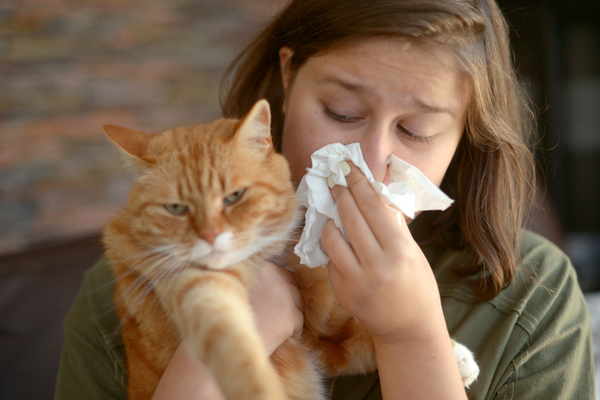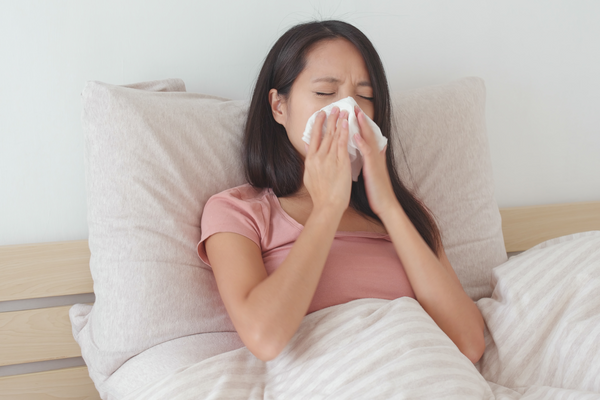6 Things You Think Are Environmentally Friendly, But Aren’t

We all care about our beautiful planet at least a tiny bit. Some of us more than others. And with the best intentions, many of us follow tips and tricks to try to lead a more eco-friendly lifestyle. But, as it turns out, some of these things fall between not at all helpful and completely counterproductive.
Here are just a few things that aren’t so eco-friendly after all.
Tote Bags
In the United States alone, about one hundred billion plastic shopping bags are used each year. That’s an average of 1,500 plastic shopping bags per American family per year from shopping trips. Over the past few years, tote bags have undoubtedly become one of the most popular ways people try to minimize their environmental footprint –– whenever they actually remember to bring them to the store. And although cutting plastic shopping bags out of your routine is a good move, most people don’t stop to think about the environmental impact of the tote bag itself. Every material has a different footprint when it comes to energy and water consumption, litter impacts, and recyclability. Some are better than others.
A recent report by the Ministry of Environment and Food of Denmark assessed the environmental impacts of different types of shopping bags, ranging from the thin polyethylene bags to paper bags to organic cotton totes. The report found that it takes exponentially more resources to make a fabric tote bag compared to the cheap polyethylene. The report also analyzed how many times you’d need to use each type of bag to equal the environmental impact of a plastic one. Paper bags and plastic-based reusable totes required between 35 and 85 re-uses. Here’s the shocker: A cotton tote, which is often advertised as the most environmentally-friendly choice, had to be used 7,100 times to make up for the resources that went into it. And organic cotton? An astounding 20,000 times. So you’d have to use your organic cotton bag twice a week over the next 192 years to make up for its environmental impact.
So what’s the best alternative to single-use plastic shopping bags? While there isn’t one single answer, jute or hessian bags are a great option. They’re both made from durable and naturally biodegradable vegetable fibers. Jute is also a renewable resource and the plants sequester carbon. When a jute bag comes to the end of its life, add it to the compost heap, where it will eventually break down. Alternatively, make sure you recycle it with textiles to maximize usage. Of course, if you already have a collection of tote bags –– organic cotton, polyester, or otherwise –– the best thing you can do for the environment is to keep using them until they’re beyond repair.
Organic Cotton
If an organic cotton shopping tote requires 20,000 uses to make up for its environmental impact, that’s a pretty good indicator that organic cotton probably isn’t the most sustainable material. But why is that? Organic generally means that a crop (such as cotton) was grown without synthetic additives or pesticides and wasn’t genetically modified. So the reality is that your organic cotton t-shirt probably used up many more resources to produce than one made of conventionally grown cotton. Conventional cotton is already a fairly resource-intensive crop –– and it’s been genetically engineered to increase yields and decrease the need for water. So with organic cotton, more of the crop is lost to pest damage because of the lack of pesticides, which means that it takes way more organic cotton plants to make a t-shirt than it does conventional plants.
Natural Sea Sponges
Natural sea sponges are definitely better than artificial ones made from polyurethane foam, right? Not quite. While it’s true that natural sea sponges are biodegradable (because, well, they’re natural), they’re also harvested to near-extinction. This has a domino effect on the marine food chain, since sea sponges are the main food source for hawksbill sea turtles, a species which is endangered too.
Aspirational Recycling
We’ve all done it: a disposable coffee cup, greasy pizza box, bottle caps, plastic straws and utensils, and maybe even the odd plastic shopping bag. We want to do right by the environment so badly that we sometimes toss things into the recycling bin with only the hope that it’ll be repurposed. Sadly, though, this aspirational recycling causes much more harm than good.
Although you may be recycling with the best intentions, many items contaminate a load of recycling and can cause an entire batch to go to the landfill. This is because many recycling centers run off the income they get from selling recycling. In the past, China was one of the largest importers of plastic and kept many recycling centers afloat. However, China recently announced to the World Trade Organization that they will no longer import 24 types of waste, and will only accept loads that are no more than 0.5 percent contaminated.This means that every time we wishfully throw something that we think should be recyclable without knowing or throw away recyclables that are contaminated with food, soap or shampoo residue, or other particles –– we are essentially ensuring that that batch is sent to the landfills.
To ensure that you’re recycling properly, call your local recycling center to find out what’s acceptable. And adopt this as your new recycling mantra: “When in doubt, throw it out.”
Biodegradable Dog Poop Bags
While at first it may seem like those green biodegradable poop bags are the most eco-friendly choice to clean up your pooch’s poo, the reality is that biodegradable plastics like these still end up in landfills, and when they're there they won't decompose like they would in compost. If they do biodegrade in landfill, it's likely they'll produce the greenhouse gas methane. Instead, pet waste should be disposed of in poop-only bins, buried, or composted in human-friendly ways.
E-Book Readers
Reading on an e-book device rather than lots of different paper books must be super eco-friendly, right? Not really. When you read a book on an electronic device rather than in paper form, it’s true you’ll be saving some trees. However, manufacturing an e-book device involves mining for non-renewable resources and causes more greenhouse gas emissions. Paper books also have an environmental impact, but you can make reading a more eco-friendly hobby by joining a library or buying secondhand books.
How to Truly Make More Eco-Friendly Choices
We should all strive to make lifestyle changes that will be better for the planet. However, being eco-friendly isn’t always as clear cut as it seems. By being more mindful of our choices, doing research, and staying informed of new trends and emerging science can help us all do better for the Earth. Take a step in the right direction by making your home more eco-friendly. Start by doing things like turning off lights when you leave the room, planting a simple backyard garden, and switching to planet-friendly cleaning and laundry products, like The Ecology Works.
The Ecology Works is a science-driven company, featuring a full line of proprietary household products, including: anti-allergen solutions, anti-allergen laundry detergent, anti-allergen pet shampoo, dust mite and flea control solutions, and an all-purpose cleaner and EPA-registered disinfectant. We create products that are better for people and the planet and unrivaled in performance. Our promise to you: We take our responsibility to the environment and our customers seriously. Green is our passion, our way of life; do no harm, our ethos.
Learn more about the science behind our products and about how to make eco-friendly choices. Have questions? We’re here to help! Contact us here or send us a message via Facebook.




